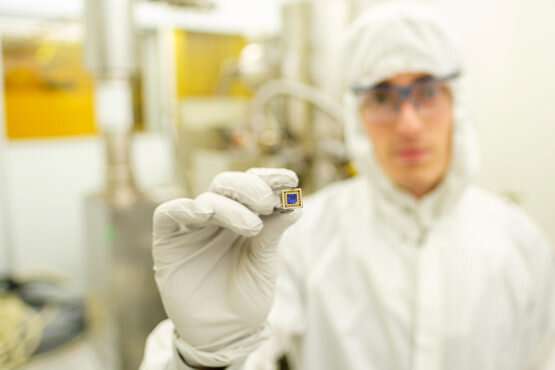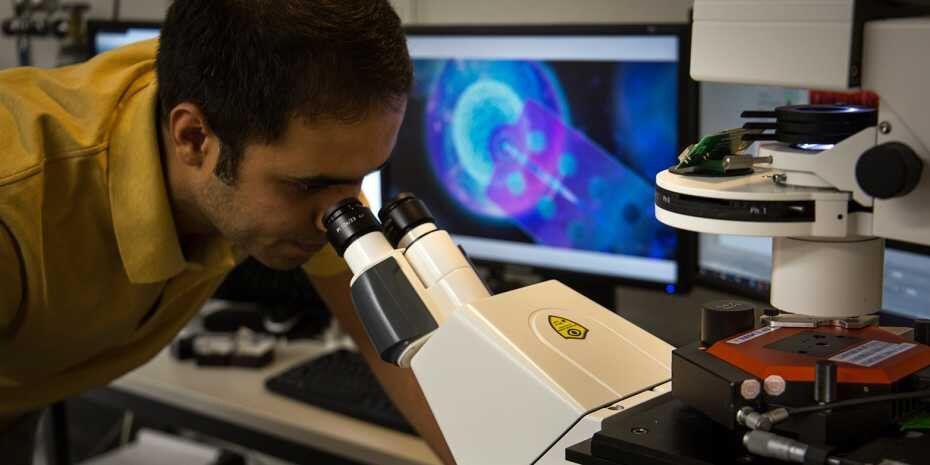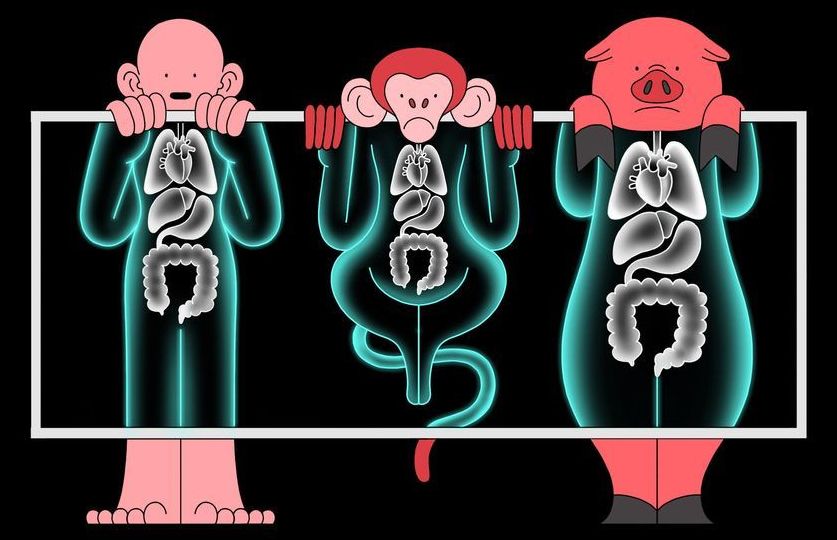Researchers have cast doubt on the claims upon which Homology Medicines is built.
New research from the USC Viterbi School of Engineering could be key to our understanding of how the aging process works. The findings potentially pave the way for better cancer treatments and revolutionary new drugs that could vastly improve human health in the twilight years.
The work, from Assistant Professor of Chemical Engineering and Materials Science Nick Graham and his team in collaboration with Scott Fraser, Provost Professor of Biological Sciences and Biomedical Engineering, and Pin Wang, Zohrab A. Kaprielian Fellow in Engineering, was recently published in the Journal of Biological Chemistry.
“To drink from the fountain of youth, you have to figure out where the fountain of youth is, and understand what the fountain of youth is doing,” Graham said. “We’re doing the opposite; we’re trying to study the reasons cells age, so that we might be able to design treatments for better aging.”
Sometimes the best discoveries happen when scientists least expect it. While trying to replicate another team’s finding, Stanford physicists recently stumbled upon a novel form of magnetism, predicted but never seen before, that is generated when two honeycomb-shaped lattices of carbon are carefully stacked and rotated to a special angle.
The authors suggest the magnetism, called orbital ferromagnetism, could prove useful for certain applications, such as quantum computing. The group describes their finding in the July 25 issue of the journal Science.
“We were not aiming for magnetism. We found what may be the most exciting thing in my career to date through partially targeted and partially accidental exploration,” said study leader David Goldhaber-Gordon, a professor of physics at Stanford’s School of Humanities and Sciences. “Our discovery shows that the most interesting things turn out to be surprises sometimes.”
Central London’s freshwater sources contain high levels of antibiotic resistant genes, with the River Thames having the highest amount, according to research by UCL.
The Regent’s Canal, Regent’s Park Pond and the Serpentine all contained the genes but at lower levels than the Thames, which contained genes providing resistance for bacteria to common antibiotics such as penicillin, erythromycin and tetracycline.
The genes come from bacteria in human and animal waste. When antibiotics are taken by humans much of the drug is excreted into the sewer system and then into freshwater sources. The presence of antibiotics in these water sources provides an environment where microbes carrying the resistance genes can multiply quicker and share their resistance with other microbes.
For the cells in our bodies to function as a unit, they must communicate with one another constantly. They secrete signalling molecules—ions, proteins and nucleic acids—that are picked up by adjacent cells, which in turn pass on the signal to other cells. Our muscles, digestive system and brain are only able to function thanks to this type of communication. And this is the only way in which our immune system can recognise pathogens or infected cells and react accordingly—again, by sending out signals to mobilise the immune defences. If something goes wrong with this signalling between cells, it can lead to diseases such as cancer or autoimmune disorders. “This is why it is important to research which signals the cells send out in which situations,” says Morteza Aramesh. The biophysicist, who works in the Laboratory of Biosensors and Bioelectronics at ETH Zurich, has developed a new method that does precisely that: it listens to communication between individual cells.
An innovative nanosensor
Although it has been possible to measure these signals in the past, it could only be done for entire populations of hundreds or thousands of cells. The methods were not sensitive enough to use on individual cells, meaning that the signalling molecules from individual cells were submerged into the average of the total cell population: “It was impossible to detect differences between cells in order to identify diseased cells, for instance,” says Aramesh.
Abstract: The large, error-correcting quantum computers envisioned today could be decades away, yet experts are vigorously trying to come up with ways to use existing and near-term quantum processors to solve useful problems despite limitations due to errors or “noise.”
A key envisioned use is simulating molecular properties. In the long run, this can lead to advances in materials improvement and drug discovery. But not with noisy calculations confusing the results.
Now, a team of Virginia Tech chemistry and physics researchers have advanced quantum simulation by devising an algorithm that can more efficiently calculate the properties of molecules on a noisy quantum computer. Virginia Tech College of Science faculty members Ed Barnes, Sophia Economou, and Nick Mayhall recently published a paper in Nature Communications detailing the advancement.
Here’s a nifty if still early-in-development bit of science. This week, scientists at Harvard and elsewhere said they’ve created a novel type of dressing that could rapidly heal all sorts of wounds. The gel-based, heat-activated design was inspired by the Wolverine-like skin we have when we’re in the womb.
It’s well known that our fetal skin can completely regenerate itself when injured, without scarring. This happens, at least partly, because embryonic cells produce protein fibers that quickly and tightly close up and contract the skin surrounding a wound. As adults, our skin cells can still do this to an extent, but nowhere to the same degree.
By Will Knight
A super-powered neutrino generator could in theory be used to instantly destroy nuclear weapons anywhere on the planet, according to a team of Japanese scientists.
If it was ever built, a state could use the device to obliterate the nuclear arsenal of its enemy by firing a beam of neutrinos straight through the Earth. But the generator would need to be more than a hundred times more powerful than any existing particle accelerator and over 1000 kilometres wide.
I don’t use the term artificial gravity because, the gravity from a black hole is real.
If you have harnessed and are able to control a black hole would you be able to use it as portable gravity device?
I don’t really have the physics and the math to to figure it out. But it would seem that if you are in a low gravity environment, you could place a black hole under the floor, and have gravity. Presumably by changing the distance between the floor and the black hole you could adjust to 1 gravity or partial gravity.
“I was wrong,” Church now admits.
A startup he cofounded, eGenesis, had made news for its ambitious plans to use CRISPR gene-editing technology to modify pigs so their organs could be safely transplanted into humans without being rejected. That could solve a critical shortage of human organs available for transplant.
But no human test has yet been carried out. Instead, the company is currently testing organs from its pigs in monkeys at Massachusetts General Hospital in Boston. The experiments are being led by the hospital’s chief of transplant surgery, James Markmann.









